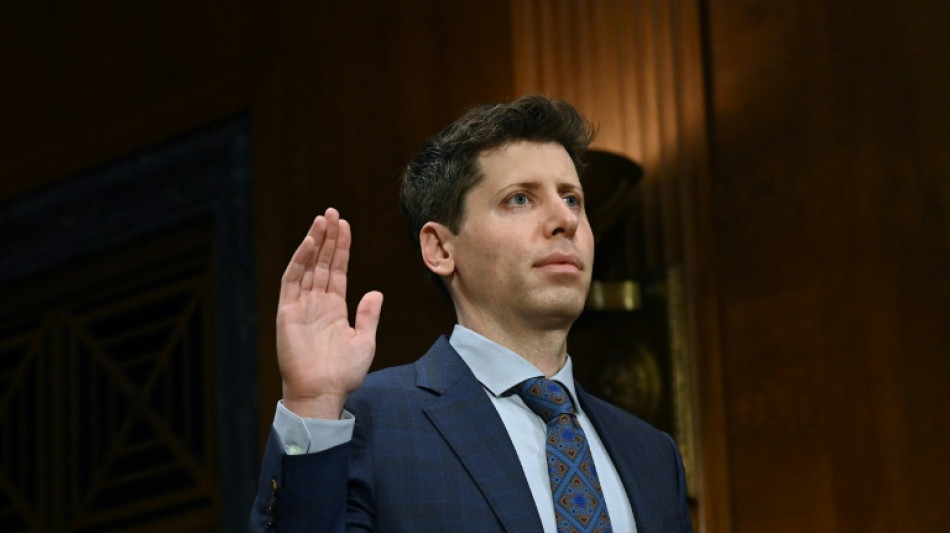

OpenAI CEO tells US senators regulation is 'critical'
Sam Altman, the chief executive of ChatGPT's OpenAI, told US lawmakers on Tuesday that regulating artificial intelligence was essential, after his chatbot stunned the world.
The latest figure to erupt from Silicon Valley, Altman testified before a US Senate panel and urged Congress to impose new rules on big tech, despite deep political divisions that for years have blocked legislation aimed at regulating the internet.
But governments worldwide are under pressure to move quickly after the release of ChatGPT, a bot that can churn out human-like content in an instant, went viral and both wowed and spooked users.
Altman has since become the global face of AI as he both pushes out his company's technology, including to Microsoft, and warns that the work could have nefarious effects on society.
"OpenAI was founded on the belief that artificial intelligence has the potential to improve nearly every aspect of our lives, but also that it creates serious risks," Altman told a Senate judiciary subcommittee hearing.
He insisted that in time, generative AI developed by OpenAI one day will "address some of humanity's biggest challenges, like climate change and curing cancer."
However, given the risk to disinformation, jobs and other problems, "we think that regulatory intervention by governments will be critical to mitigate the risks of increasingly powerful models," he said.
Altman suggested the US government might consider a combination of licensing and testing requirements before the release of powerful AI models.
He also recommended labeling and increased global coordination in setting up rules over the technology.
"I think the US should lead here and do things first, but to be effective we do need something global," he added.
Subcommittee chairman Senator Richard Blumenthal opened the session by playing a recording of a convincing AI version of himself reading out remarks crafted by ChatGPT.
Artificial intelligence technologies "are more than just research experiments. They are no longer fantasies of science fiction, they are real and present," Blumenthal said.
L.Gastrell--MC-UK




